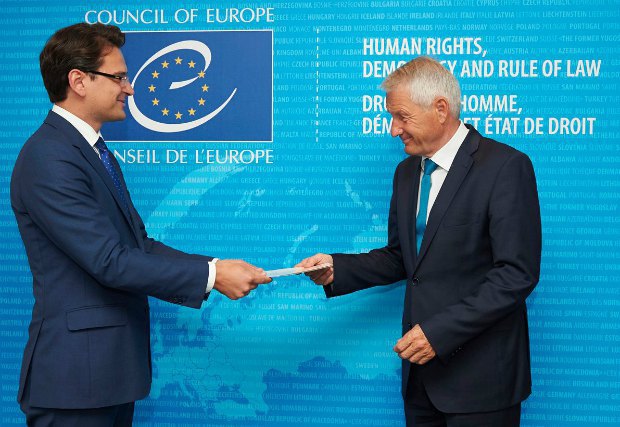
Mr. Ambassador, it has been several weeks now since you were recalled to Kyiv for consultation. How long will you stay here?
In diplomacy, the longer the recall is, the more serious is the signal you are sending to the partner that the problem is really deep and fundamental. I have already received a text from Strasbourg literally today (on the day of our conversation on 4 July – ed. note) from a person, let us say, from the other side of the barricades, who wanted to know when I was coming back. That is, they are analysing the depth of Ukrainian dissatisfaction, and therefore our signal, with Ukraine really reacting in a tough manner by recalling the ambassador for consultation, has been received and interpreted correctly.
It is still unknown how long the recall will last as consultations continue. And they will last exactly as long as required. I have a one-way ticket. At the moment, I do not have a return ticket to Strasbourg.
What range of means does Ukraine have to display dissatisfaction?
I suggest we divide our entire reaction into two parts. The first would involve bold and resolute steps that are publicly visible. For example, we can recall invitations to observers to monitor our election. The second part is a set of steps that I call a "tactic of a thousand cuts": when we make small cuts, causing pain to those who hurt us, but do so unbeknown to the public eye, to the outside world. This is exactly the function of government diplomacy. Take the ambassador's word for this, the Council of Europe will feel these steps and they will affect those who stood for the unconditional return of Russia. We are now finalizing a set of such steps.
You have mentioned recalling the invitations to PACE observers to monitor the elections in Ukraine. The PACE has already reacted to this decision while the Foreign Ministry of Ukraine has validated parliament's actions. Could this affect the recognition of our elections?
Absolutely not. First, there will be a full-fledged monitoring of the elections in Ukraine, both at the bilateral level and at the level of the OSCE's Office for Democratic Institutions and Human Rights (ODIHR). The Bureau will enjoy the full positive attitude of Ukraine.
Moreover, if people who were planning to go as part of the PACE delegation really badly want to observe the elections, they can do so as part of the delegations of other organisations.
Our position is as simple as that: you (PACE) completely ignored not only the interests and position of Ukraine, you completely ignored your own position because there is a PACE resolution clearly saying: "full-scale dialogue with Russia cannot be resumed unless it demonstrates tangible progress in complying with the requirements of the Assembly on Russian aggression against Ukraine". I have a question: if the Assembly bends itself across its knee, completely forgets all of its previous decisions, does not require Russia to comply with them and lets the Russians back in, what moral or political ground do you have to demand anything from us? Go and ask yourself: what we have to do to ensure that we, the Assembly, deliver on our own resolutions. Instead of telling Ukraine what it should do.
Diplomacy has the principle of reciprocity: you ignored us - we ignored you. In my opinion, it is all fair.
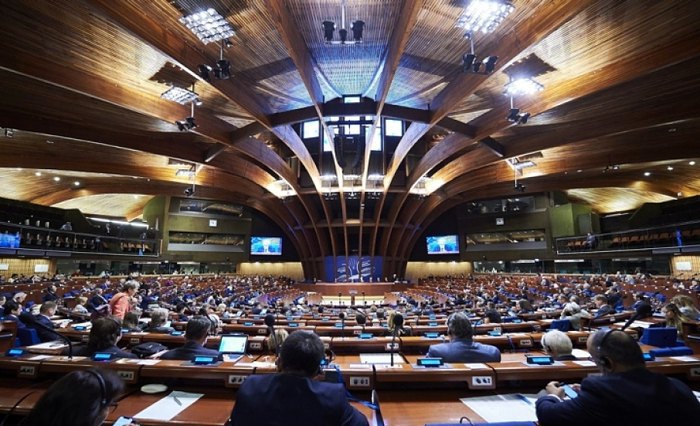
When there was a debate in the PACE about the return of the Russian delegation in April, we resorted to an extraordinary step and voluntarily paid a higher than standard contribution to the PACE budget. How did it help?
During the PACE session in April, I invited one of the top campaigners for Russia's to the Assembly for a coffee, and he took his time telling me that this is all for people and the like. But when all of his arguments were rejected, he went silent for a while and then said: "But, Dmytro, Russia does not pay money to the Council of Europe. So what did you, Ukraine, do to help the Council of Europe overcome the financial crisis?" I replied: "Dear, Ukraine has made a voluntary contribution to the budget for the first time in history. And not 10,000 dollars but 400,000 dollars. And we are not the richest country in the world, unlike the country you represent. But we found a capacity to help the Council of Europe in these difficult times, so you should not say now that Ukraine only takes and demands, but does not give anything in response."
He was absolutely embarrassed and acknowledged that he no longer had any issues with Ukraine because if the money was paid, it means they are really trying. Unfortunately, I have to say, this did not affect his position. But this step helped us to completely dismiss our opponents' argument that Ukraine is some capricious state, which begs everyone but does not make any constructive contribution to solving the problem. And politically it was very important.
How much does Ukraine pay to the Council of Europe annually?
The general budget of the Council of Europe is 437,180,100 euros, Ukraine's contribution to the Council of Europe budget in 2019 is 3,789,077 euros.
At the same time, Russia's contribution is around 33 million euros, it is one of the so-called "big payers". The amounts are incomparable. Therefore, when there are suggestions for Kyiv to stop paying money in response to the PACE conspiracy, I object to this for two reasons. First, we do not have to behave exactly as the Russians behave, not to copy their steps. And second, this step will not cause significant pain to our partners, it is much more difficult to survive the lack of 33 million rather than 4 million euros.
But, at the same time, we will get more problems: we will instantly be blamed for violating our obligations.
My friend, a businessman who works in Europe, instantly told me when he heard about our problems with the PACE a year ago that Ukraine has no chance - the Europeans will "surrender" to the Russians. "I have been doing business with Europeans for many years and I understood one rule: God of the West is money. And when they are deprived of money, they begin to shake," he said. In the end, that is what happened.
The Ukrainian media reported about an alleged agreement that Russia will return captive sailors in exchange for its return to the PACE. How true is it?
I absolutely want to make it clear that there was to be no exchange. Moreover, Russia knew perfectly well that there would be no serious pressure to force it to make concessions. The Kremlin knew that they would still be allowed to return to the PACE without meeting anyone halfway.
It is easy to prove the lack of conspiracy. Some of our partners said they were asking three things from Russia: let the sailors go, pay money to the PACE budget and let the commissar visit Crimea. So, there was no progress on any of these three points at the start of the PACE session. Thus, had there been a plot, some sort of a "deal" behind our back, at least something would have been done. But there was nothing.
I am proceeding from the fact that the Russian note which appeared on 25 June was aimed primarily at the International Tribunal. At the time, the Russians already knew that everything would be okay in the PACE, that they would be allowed to return.
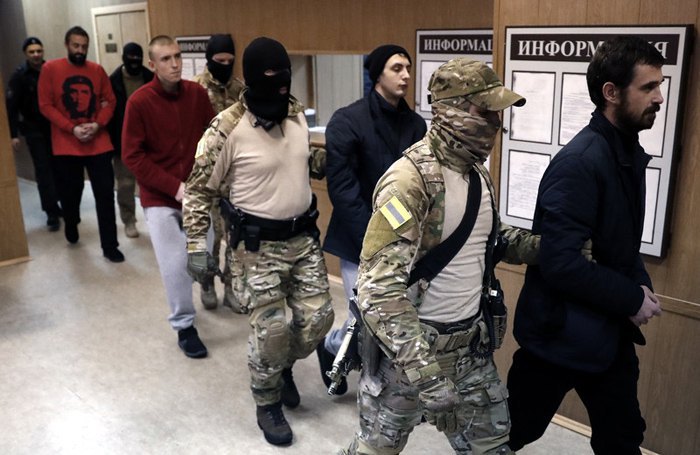
Did this public statement by the Ukrainian Foreign Ministry disrupt the agreement on the exchange of the sailors?
I am against interpreting this issue as a failure to bring back the sailors. Because any person who understands the international affairs and the logic of Russians at least a little bit would see after reading the Russian note that they had no intention to return the sailors. The purpose of the note was to imitate readiness to return the sailors. And it was written deliberately in such a way, attaching so many requirements to the return that it would seem categorically inappropriate at first glance.
Of course, you can enter into negotiations, talk about something, dismiss some requirements and find others. But the initial, starting, negotiating position of the Russians did not provide any possibility for Ukraine to agree. The Russians knew very well what they were writing and formulated their note this way.
So why was there a conflict between the minister and the president?
This is a problem of communication between two people.
In any case, I believe that this situation for Ukraine as a state is too great a luxury. We simply cannot afford such a luxury as sorting things out between the leaders of the state. Because the Russians try to use every situation that we create with our own hands against Ukraine, exposing us as "partners who are impossible to negotiate with".
I think this is a development problem, a transitional problem. And I hope there will be a new minister as soon as possible, the team in the president's office will be formed in full, and they will all act pursuant to the single logic. Because the worst thing we can afford today is the presence of two to four logics and positions.
As for communication with the PACE: there was a statement by MPs that the president refused to meet them on the eve of the session. Was it necessary? And why did the president not meet the Ukrainian delegation?
I will not comment on this because I am not part of this relationship. It must be decided by MPs because they have their own format of relations with the president. And let us be frank, this format overlaps with an election campaign, when everyone tries to profit from a particular political situation.
As an ambassador and representative of the Foreign Ministry, I have completely distanced myself from these processes. And I had no problems communicating with the president's office in the context of the PACE. Vadym Prystayko always replied to my messages and provided me with meaningful answers to my questions.
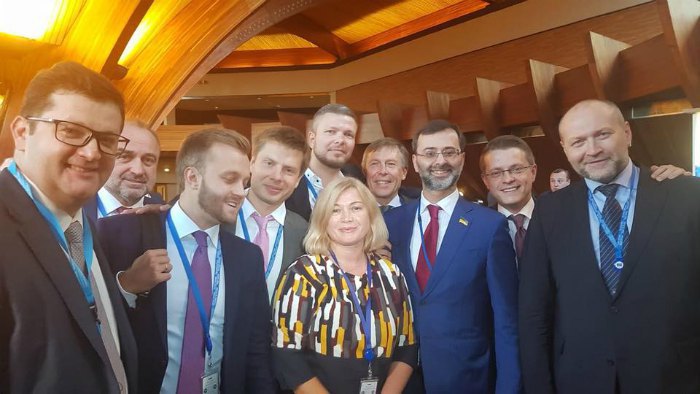
Will the split in the PACE over Russia's return, when some countries have supported Ukraine's position - affect the EU itself? Would this not stimulate further fragmentation of the EU into certain blocs?
First, we can realistically rely on around 60 votes in the PACE. At the same time, Russia's supporters have mobilised a coalition of around 140-160 votes, these are people who are ready to vote against us on a regular basis.
Second, there are, in general, a lot of complex, multilevel processes underway in Europe. And this PACE story will certainly be reflected in them. But it will not be a decisive factor, the trigger that will launch some more important processes within the European Union.
At the same time, the PACE precedent will be used in a different situation. When they talk about a new policy on Russia, how to build a relationship with it, there will definitely be voices that will say "well, then, it went well in the PACE and nobody died because of what they did there. So, let us do the same here too somehow." The creation of a precedent that you can refer to is very harmful.
"EUROPE IS REALLY TIRED OF CONFRONTATION WITH RUSSIA"
What bad surprises should we anticipate from the EU in addition to the Russians' return to the PACE? The lifting of sanctions is next?
There has been a steady trend in the EU over the last five years to lift sanctions on Russia, they have always tried to remove them. But there is one difference between what was there last year and what there is now: the key capitals of the EU already have an insurmountable desire to negotiate with the Russians. And this is dangerous for us. The PACE has showed what these negotiations could result in.
The sanctions are linked to the Minsk agreements and therefore it is impossible to just lift them without their substantial and effective implementation. But Minsk cannot be implemented by Ukraine alone, Russia must do something too.
In general, I believe that linking the sanctions to the implementation of the Minsk agreements was one of the fundamental victories of Ukrainian diplomacy. Were it not for this link, the chance of a certain easing of the sanctions would have been much higher.
Now, Europeans and Russians will try to do everything beautifully. Their main desire is to secure the lifting of sectoral sanctions because they really block business. Therefore, the complete lifting of sanctions is ruled out, personal sanctions against specific people, something that personally affects some business people will remain, but this will not interfere with doing business with these same people.
I know, I see and feel that the desire to negotiate with Russia is already much stronger and more obvious this year than it was last year.
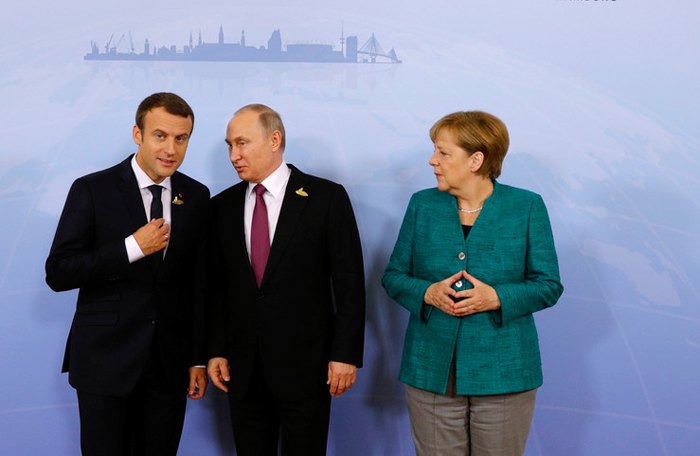
How will the current appointments to EU leadership affect further Ukrainian-European relations?
When I saw the list of approved candidates for positions in EU leadership, I made a mental note that the "old Europe" decided to get consolidated. That the EU is already boiling like a volcano. There are already several lines of confrontation along the line of "old" Europe-"new" Europe (meaning those who joined after the collapse of the socialist camp in 1989).
That there has been a split between liberals and conservatives in politics. By the way, I am convinced that very soon the word "populist" will lose its cursory connotation and will be perceived as a norm. That is, this is a line of conflict.
So, while approving these people for senior posts, "old Europe" decided to take full responsibility for the processes. There is not a single representative of new Europe in leading positions, only the Italian, Belgian, German and French.
This is a very interesting process, which can heat up the volcano inside the EU even further. And the EU will be even more focused on its internal problems. Not to mention that for 500 years, Europe has governed the world, imposed its will on everyone and now the EU is not capable of resolving any external problems on its own.
And this is a very interesting period in our life.
So, let us be frank, the PACE is a peripheral organisation with regard to the EU. That is, people in the EU countries, in Germany and France have a very vague idea about the situation, no-one will explain the difference between the Council of Europe and the EU. I will tell you more, people in Strasbourg think that the European Parliament and the Council of Europe are the same thing.
But what is interesting is that the essence of the problems is always most clearly manifested on the periphery. And the situation with the Russian delegation in the PACE shows two things.
First: Europe is really tired of confrontation with Russia. But this is half a problem: the real trouble is that Europe does not know how to really change Russia's behaviour, and therefore is ready to change its own behaviour without any substantial (or any at all) acts on the part of Russia.
When the PACE made its shameful decision on Russia's return, I said in an interview with The Financial Times that what happened was not diplomacy, but the surrender of the Council of Europe to Russia.
And the worst thing is not even that they are tired. The worst of all is that they are ready to give up their positions in order to avoid unnecessary problems with Russia.
Some key European capitals have exhausted their capacity for confrontation with Russia, they want to return to the good old times. This was actually the first reason for what happened. Money is secondary.
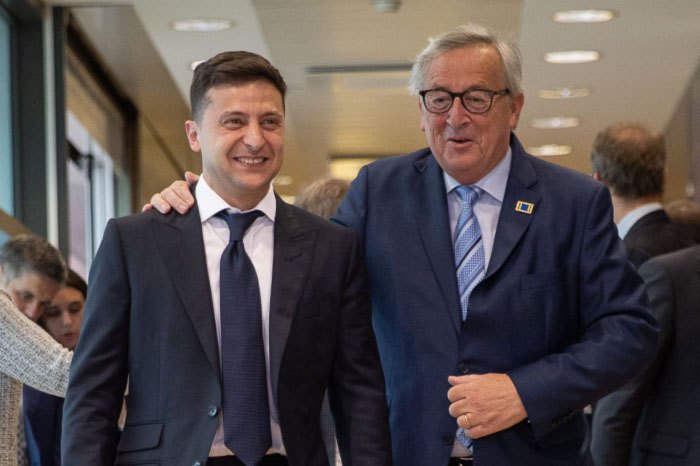
Kyiv will host the Ukraine-EU summit. Will the PACE betrayal affect its atmosphere?
I do not think that the situation in the PACE will actually affect the summit. The atmosphere will be a little different, there will be other tasks. In addition, the EU did not play any such super-active role in the PACE story. That is, some key EU member states played a role but not the EU as a union.
In general, I am not involved in preparations for the summit and I do not know any internal trends. But I would not expect anything grand from this summit, by default, for one simple reason - both the EU and Ukraine are in the phase of transition of power: outgoing there, incoming here. Well, what kind of commitments can EU leaders undertake if they no longer hold office tomorrow? They can just ceremonially kiss a cheek, greet and thank.
It is the same with us: soon there will be a new parliament, then a new government, which will formulate its strategy accordingly. Because of this, we too cannot take any rosy obligations.
Therefore, I would pin my expectations on the next summit when we will have a new parliament and a new government, and there will be a new European Commission in place already. From then on, you can be ambitious and ask for something, agree on something.
I do not want to offend anyone, but in my picture of the world it is a passing summit.
Is Ukrainian diplomacy (jointly) capable of responding to these challenges?
It is. Provided the state has a single integral position.
The main risk that I see as the ambassador to the Council of Europe is that we will not be able to really agree on a coherent and comprehensive response to the PACE situation: some will pull to one side, others to the other. And even if certain decisions are made, we will not be able to implement them because we all have a different vision.
This is the very risk I see in the broader context of Europe.
All we need to protect the interests of Ukraine is three things. The first is the integrity of public policy. To ensure that our partners (who can turn into our opponents on certain issues) know that if it was said by the president's office it was the position of the state and not only of the president's office. If something is said by the Foreign Ministry, this is also the agreed position of the state. That is, we should act as the most integral camp.
The second thing is that Ukrainian society must understand that compromises are inevitable. And if we begin a revolution here over every compromise, we will be playing into the enemy's hands. Of course, there are "red lines" that cannot be crossed and that are beyond the scope of a compromise. But we will have to make certain concessions.
And the third thing (concerning power again) is that we will be able to be effective if we are not afraid to bite into our own. I grew up in Ukrainian diplomacy, which always tried to be super-constructive, white and fluffy, so that everyone would like us. Thank God, this trend began to change after 2014. But then it was easier because we only had to bite the enemy only. And I am afraid that now we are in a position when we will also have to bite our allies to protect our interests.








